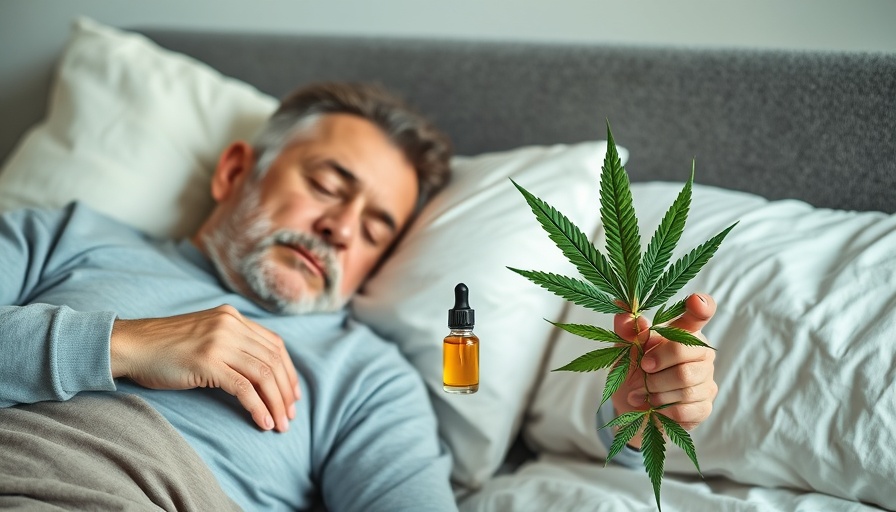
The Promise of Cannabis for Sleep Issues
For many seniors, sleep problems can become a regular part of life, often leading to feelings of fatigue and unrest during the day. Interestingly, recent discussions, particularly highlighted in Dr. Michael Bruce's video, "How Cannabis Can Help Seniors Sleep Better TONIGHT," reveal cannabis as a potential solution that merits attention. With the rise of legalization across states, many are seeking alternatives to traditional sleep aids, leading to the exploration of both THC and CBD.
In 'How Cannabis Can Help Seniors Sleep Better TONIGHT,' the video discusses the relationship between cannabis use and improved sleep, prompting us to delve deeper into its potential benefits for seniors.
Understanding Cannabis: A Brief Overview
Cannabis plants contain a variety of compounds, notably THC (Tetrahydrocannabinol) and CBD (Cannabidiol). THC is known for its psychoactive effects, providing a sense of relaxation for users. On the other hand, CBD does not create a high but is recognized for its anti-inflammatory properties, potentially alleviating pain and anxiety—both of which can disrupt sleep. Another lesser-known compound, CBN (Cannabinol), is gaining attention for its sedative effects, which could be particularly helpful for seniors facing frequent nocturnal awakenings.
The Compelling Need for Alternative Solutions
Recent studies highlight that common over-the-counter sleep aids, like diphenhydramine (found in Benadryl), have been linked to an increased risk of dementia in older adults. As seniors seek alternatives, standing against the traditional use of alcohol as a sleep aid, cannabis emerges as a candidate that may offer a gentler approach to restful sleep without the cognitive risks associated with other medications.
How to Get Started Safely with Cannabis
For seniors looking to explore cannabis for sleep, starting with non-smokable forms like edibles or tinctures is advisable. It's essential to approach this with caution; initiating with low doses allows for gradual adjustment. Engaging a doctor in this conversation is fundamental, ensuring optimal safety and aligning new methods with existing health conditions and medications. Moreover, using cannabis around bedtime—preferably a few hours before sleeping—can enhance its effectiveness in promoting better sleep quality.
Creating a Healthier Sleep Routine
While the idea of using cannabis might feel daunting initially, seniors may find comfort in knowing the community around them supports this choice. Many dispensaries are staffed with knowledgeable individuals eager to assist first-time users, guiding them through the various options tailored to specific health concerns. Emphasizing a low and slow approach while establishing a relaxing nighttime routine that incorporates cannabis could transform the way sleep is experienced.
If you're a senior who has struggled with better sleep quality, it's crucial to consider all possibilities, including cannabis, as an alternative. Don’t hesitate to explore these new options and engage in discussions with your healthcare provider for personalized advice. Taking small steps today can lead to significant improvements in sleep and overall well-being tomorrow.
 Add Row
Add Row  Add
Add 


Write A Comment